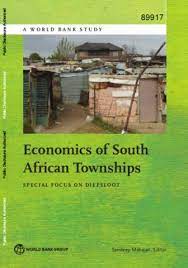Venture capital opportunity to ‘push the boundaries’ when investing in township economy

Investment managers and funders often shy away from these businesses, such as those found in townships and rural areas, because it is often treated as a separate form of investment, she said during a South African Venture Capital Association- (Savca-) hosted webinar on July 15.;“This shouldn’t be the case, given that this is where most of our population lives – rural and township, mostly,” she stated.She pointed to the importance of providing funding in these areas, more than in commercial city centres, Nzimande noted, as both are “equally importanStart-up collaboration company. “There’s an additional layer that makes it harder for township entrepreneurs to be able to access the opportunities that exist.
Standalone investment vehicle South African Small- and Medium-Enterprise Fund CEO, meanwhile, pointed out that the lack of investment into rural and township-based entrepreneurs could be attributed to government’s failure to provide adequate service delivery.However, finding new ways that are going to be more effective to deliver things that are already being delivered, is going to be challenging, he said. Another reason is that VC, in general, is being driven by large companies that want to be innovative but are “constrained by their own large and bureaucratic structures” and so investments often take place via intermediaries, which often see investments being made into a company’s own particular needs, or a variety of deals. VC is, however, gaining traction as more people begin to understand the positive side to the sector that’s emerged in South Africa over the last few years.“It creates a huge excitement and a better understanding of the possibilities for VC,.